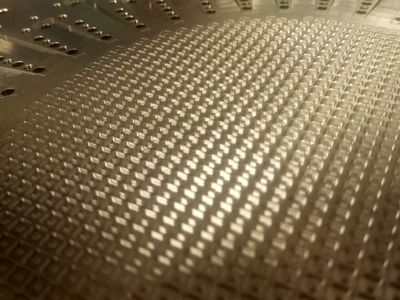Metasurfaces, classic electromagnetic field theory, physical optics, microwave devices, advanced antennas, metamaterials.
FEI3310 Metasurfaces: Theory and Practice, PhD course 10.0 credits

Information per course offering
Course offerings are missing for current or upcoming semesters.
Course syllabus as PDF
Please note: all information from the Course syllabus is available on this page in an accessible format.
Course syllabus FEI3310 (Spring 2019–)Content and learning outcomes
Course contents
Intended learning outcomes
After the course, the students should be able to:
- Describe a metasurface; explain the types of metasurfaces; and identify their limitations and properties.
- Develop analytic models to characterize canonical metasurfaces and periodic structures.
- Describe the operation of specific metasurfaces via in-house computational codes they develop.
- Choose the appropriate type of metasurface for a particular application.
- Analyze the operation of metasurfaces with commercial software.
- Design basic metasurface structures with commercial software.
- Develop an advanced microwave circuit or antenna that makes use of metasurfaces.
- Describe the environmental impact of metasurfaces, including "electromagnetic effects", power consumption, and materials employed for the metasurfaces.
- Identify and classify metasurfaces depending on their impact in the environment.
- Conduct research on metasurfaces, which are more environmentally friendly.
Literature and preparations
Specific prerequisites
The course requires advance knowledge of electromagnetism, and it is desirable to have knowledge about radiofrequency technologies. Students who hold an MSc degree in Telecommunication Engineering, Electrical or Electronic Engineering or Physics should have the basis to meet the requirements of this course.
Furthermore, basic knowledge of antennas and/or microwave devices is an asset. If the student has already passed a Masters and/or PhD course on electromagnetic fields, antennas, microwaves, and optics, he/she should be in the ideal condition to follow the lectures.
Literature
Examination and completion
Grading scale
Examination
- EXA1 - Examination, 10.0 credits, grading scale: P, F
Based on recommendation from KTH’s coordinator for disabilities, the examiner will decide how to adapt an examination for students with documented disability.
The examiner may apply another examination format when re-examining individual students.
If the course is discontinued, students may request to be examined during the following two academic years.
Students must attend the 5 weeks of lectures. Exercises and homework that are handed out during the lectures are mandatory to do and hand in.
Each week will have a different educational leader.
Students must attend and participate in the most of the lectures (90% of attendance is mandatory). They must complete all the exercises given to them on the lectures, deliver the required reports and respect deadlines.
Other requirements for final grade
During the active 5 weeks of the course, there will be home-assignments, including exercises and development of simulation codes. The students must report and deliver all the assignments on time.
Hand in a written report and make an oral presentation of a proposed final project.
The teachers will evaluate the assignments and the final project. All the assignments (including the final project) must be passed, in order to pass the course.
One of the assignments will be related to environmental issues. The student must attend to a reflection seminar in which environmental implications of metasurfaces are discussed.
The final grade of the course will be Passed/No Passed.
Examiner
Ethical approach
- All members of a group are responsible for the group's work.
- In any assessment, every student shall honestly disclose any help received and sources used.
- In an oral assessment, every student shall be able to present and answer questions about the entire assignment and solution.